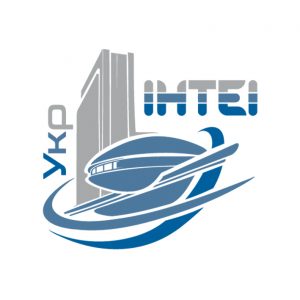http://doi.org/10.35668/2520-6524-2025-1-10
Vashchuk O. P. — Dс. S. of Law, Professor, National University “Odesa Law Academy”, Council of Young Scientists at the Ministry of Education and Science of Ukraine, Scholar Support Office, 180, Antonovicha Str., Kyiv, Ukraine, 03150; earth.olesia@gmail.com; ORCID: 0000-0003-3161-2870
Polishchuk O. T. — PhD in Economics, Associate Professor, Vasyl Stus Donetsk National University, Scholar Support Office, 180, Antonovicha Str., Kyiv, Ukraine, 03150; o-polishchuk@ukr.net; ORCID: 0000-0002-2903-1885
Iatsyshyn A. V. — Dс. S. in Pedagogy, Senior Researcher, Ukrainian Institute of Scientific and Technical Expertise and Information, Institute for Digitalisation of Education of the NAES of Ukraine, Scholar Support Office, 180, Antonovycha Str., Kyiv, Ukraine, 03150; +38 (066) 311-19-52; anna13.00.10@gmail.com; ORCID: 0000-0001-8011-5956
CALENDAR OF EVENTS OF SCIENTIFIC COMMUNITY: AN INITIATIVE OF THE SCIENTIST SUPPORT OFFICE
Abstract. The article is devoted to the analysis and evaluation of the effectiveness of the calendar of events created by the Scientist Support Office as a tool for improving the coordination and awareness of the scientific community of Ukraine. The main problem faced by Ukrainian scientists is insufficient awareness of scientific activities, which limits their opportunities for professional development and international cooperation. The lack of a centralized platform for the coordination of scientific events creates significant barriers to the integration of Ukrainian scientists into the international scientific community and reduces their participation in important scientific forums.
The article examines the initiative of the Scientist Support Office to create a calendar of events, which is designed to provide scientists with a single platform for obtaining up-to-date information on scientific events. The role and significance of this calendar in promoting scientific cooperation, raising awareness of scientific events, and improving communication among scientists are analysed. The main content of the article includes a description of the functional features of the calendar that contribute to improving access to information about events, such as centralized access to information, regular updates, convenient navigation, the ability to subscribe to updates, and others.
The article also highlights the main problems and obstacles faced by scientists when obtaining information about events: lack of a single centralized source of information, limited availability of information about events, fragmentation of the information space, insufficient transparency and openness of information, unsatisfactory quality and relevance of information, language barriers eras, difficulties in finding relevant events and limited access to resources to participate in events.
In conclusion, the article contains recommendations for improving the calendar of events to increase its effectiveness. The recommendations include improving integration with other platforms, expanding the functionality and interface, ensuring the availability of information for a wide audience, increasing interaction with users, ensuring the relevance and completeness of information, ensuring uninterrupted access to information, expanding opportunities for event organizers, increasing the attractiveness of events, introducing programs loyalty and participation incentives, as well as conducting training events and webinars.
The implementation of these recommendations will help increase the effectiveness of the calendar of events, make it a more convenient and useful tool for the scientific community, contribute to increasing participation in events and the development of scientific cooperation at the national and international levels.
Keywords: calendar of events, scientific community, Scientist Support Office, science, scientists, international cooperation, coordination, information support.
REFERENCES
- Opytuvannia shchodo efektyvnosti kalendarya podii vid Ofisu pidtrymky vchenoho u zadovolenni potreb naukovoi spilnoty [Survey on the effectiveness of the Office of Scientist Support’s calendar of events in meeting the needs of the scientific community]. 817 respondentiv. Period: 01.02.2024-01.03.2024. [in Ukr.]
- Kropelnitsky,, & Holmström, L. (2005). Science and Innovation Policy for the New Knowledge Economy. Basel, 300 p.
- Hihhins, (2011). Research Collaboration and Team Science: A State-of-the-Art Review and Agenda. Berlin, 250 p.
- Adams,, & Clark, R. (2017). The Impact of Scientific Conferences on the Development of Research Networks. Science and Public Policy. 44 (5), 602–611.
- Nyuman, (2011). Networks: An Introduction. Oksford, 400 p.
- Ito, (2019). Effects of Scientific Meetings on the Research Performance of Attendees. Science and Public Policy. 46 (6), 845–854.
- Shnaider, (2020). Scientific Events and Their Impact on the Knowledge Economy. Science and Public Policy. 47 (1), 1–10.
- Baklanov, (2018). Innovatsiina diialnist vyshchykh navchalnykh zakladiv ta yii vplyv na ekonomichnyi rozvytok [Innovative activities of higher education institutions and their impact on economic development]. Ekonomika ta derzhava [Economy and state]. 1, 45–49. [in Ukr.]
- Petrenko, M. (2019). Naukovi konferentsii yak faktor formuvannia naukovoho spivtovarystva [Scientific conferences as a factor in the formation of the scientific community]. Visnyk Natsionalnoi akademii nauk Ukrainy [Visnyk of the National Academy of Sciences of Ukraine]. 1, 34–40. [in Ukr.]
- Solovei (2020). Mizhnarodni naukovi konferentsii yak zasib intehratsii ukrainskykh uchenykh u svitovyi naukovyi prostir [International scientific conferences as a means of integrating Ukrainian scientists into the global scientific space]. Ukrainskyi zhurnal z problem nauky i osvity [Ukrainian Journal of Science and Education]. 1 (2), 12–18. [in Ukr.]
- Lysenko, A. (2021). Naukovi zakhody yak instrument rozvytku mizhdystsyplinarnykh doslidzhen [International scientific conferences as a means of integrating Ukrainian scientists into the global scientific space]. Innovatsii ta rozvytok [Innovation and development]. 3 (1), 22–28. [in Ukr.]
- Honcharuk, I. (2022). Efektyvnist naukovykh zakhodiv v umovakh tsyfrovoi transformatsii [The effectiveness of scientific activities in the context of digital transformation]. Naukovyi visnyk Universytetu «Krok» [Scientific Bulletin of Krok University]. 1 (1), 55–60. [in Ukr.]

